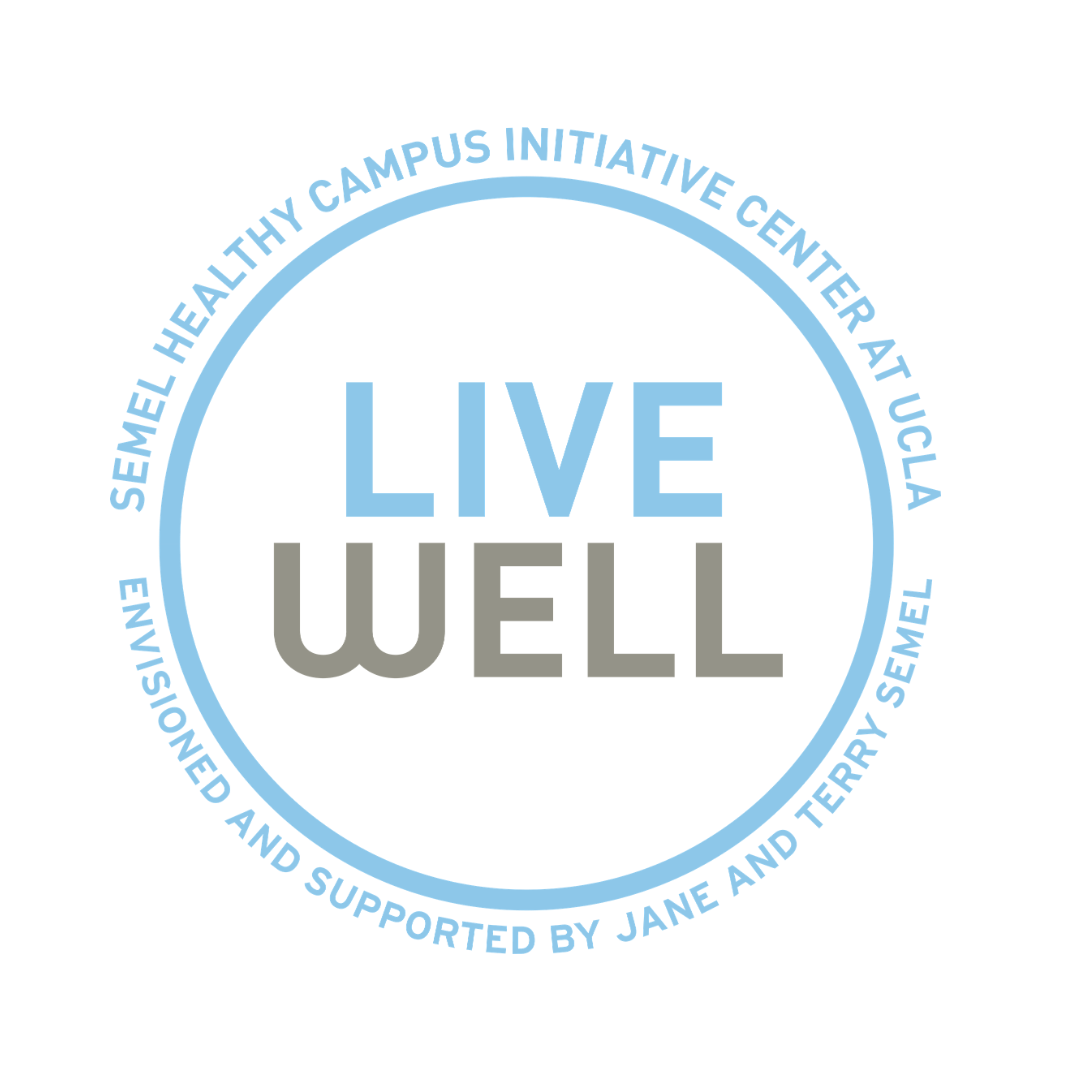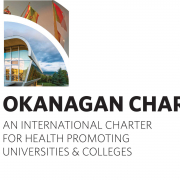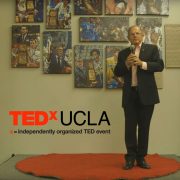Why UCLA’s Okanagan Charter Adoption & Cultivating a Community of Care Matters
A Peer Health Educators’ Perspective: Why UCLA’s Okanagan Charter Adoption & Cultivating a Community of Care Matters
The Okanagan Charter calls on post-secondary schools to embed health into all aspects of campus culture; and to lead health promotion action and collaboration, locally and globally. Created in June 2015, the Charter provides institutions with a common language, principles, and a vision for well-being in person, place and planet.
Student Health Education & Promotion (SHEP) and the Semel Healthy Campus Initiative Center (Semel HCI) collaborated to secure Chancellor Block’s support to adopt the Charter at UCLA in fall 2022. This milestone represents the on-going aspirational journey toward building a culture of health as the foundation for a resilient, equitable, and thriving community for over 85,000 students, faculty, staff and beyond.
Below, two UCLA peer health educators reflect on what the adoption of the Okanagan Charter means to them and how it supports their work of fostering community health promotion and student well-being on campus. Sahar Shirbacheh is a 4th year student majoring in psychology; as a peer health educator for SHEP, she hopes to be an advocate for students on campus and provide them with the tools necessary to improve their overall health and wellbeing. Jacob Mora is a 2nd year student majoring in psychology; as a peer health educator for SHEP, he hopes to provide resources and information to his peers in a comfortable and digestible way.
1. What does UCLA’s adoption of the Charter mean to you as student? Why is this important?
Sahar:
UCLA’s adoption of the charter highlights its commitment to prioritizing and integrating health and wellness into all aspects of the university. As a university that upholds the high academic success of its students, it is crucial for UCLA to equally support our physical and mental well-being. The demands of college can feel overwhelming at times, so taking a step back, being intentional with well-being practices, and focusing on what students need can make all the difference in their college experiences. I take great pride in being part of a university that will continue to make greater investments in researching, developing, and implementing effective health promotion strategies. With this adoption, UCLA is showing its dedication to improving as an institution that helps its students develop as ‘whole people’ who are prepared to thrive in both their personal and professional lives.
Jacob:
When considering the advancement of student affairs, it often becomes overlooked that as a student, there are many different challenges that can arise. Advancing as an institution, we must also advance to combat any struggles that can arise other than just academic struggles. By incorporating the Okanagan Charter, UCLA is accounting for the bumps in the road that may pose a threat to the well-being of students (and myself). I think this is important to me since my health and well-being can be overlooked when all I want to do is think about school and my academic success.
2. What does this adoption mean to you as a public health/community health peer health educator in general and in relation to your role on campus?
Sahar:
UCLA is positioning itself as a model and leader in health promotion both locally and globally. This adoption provides further resources for individual action and a framework that pushes for systemic change, both of which are necessary to address the pressing health needs of the UCLA community. It is an important step towards increasing the dialogue and evidence-based approaches that inform health, equity, and sustainability initiatives at UCLA. It is crucial to recognize how to effectively position resources to meet the current needs of students, and how health resources can be elevated, assessed, and communicated. As a peer health educator, this adoption supports our efforts in seeking new ways of incorporating health-promoting behaviors into our campus culture, and in identifying and sharing best practices to enhance student well-being. Peer health educators play a central role on campus to ensure that communication is effective, voices are heard, the strategy remains relevant, and outcomes are impactful. We serve as advocates, mentors, and reliable sources of information to the student body. Peer educational programs have also been especially effective in terms of modeling and promoting healthy behaviors, attitudes, and norms. Allocating greater funds for student-centered health programs and fostering cross-campus collaborations is essential to build upon campus services that offer equitable access to health resources. Further building infrastructure that facilitates collaboration and communication at all levels of the university is necessary to reduce inefficiencies and redundancies that often occur within health-promotion messaging and program implementation. Actively seeking feedback and input from diverse groups of students and staff is also beneficial for meaningful participation on campus. However, these efforts must be sustained and progress must be monitored to determine what methods have proved successful and where gaps may still exist in comprehensively addressing health and wellness needs.
Jacob:
I would love to share an interaction I had during this last year since Sahar touched upon the role UCLA is playing in adopting the charter, and how peer health education is essential to further promote positive behaviors amongst the student body. My involvement in the peer health education program has allowed me to grow and aid in my peers’ growth, and expansion of campus resources and overall knowledge about healthy behaviors. The Okanagan Charter strives to get universities to stray away from traditional ways of influencing behavior and I feel as though peer-to-peer education makes health-related information far more approachable and real (meaning that it is not sugar-coated or made in a way that does not take into account the various situations students may be in). When talking with my peers I remain considerate and share my personal experiences as I relay information. Recently, I was approached by a peer who shared that they were unaware of any STI-related information, had no knowledge of where to go if they wanted to take a pregnancy test, and wished to have various ways to say no to their partner. Given my training, I was able to recommend various resources and shared my personal experiences with the Ashe Center on campus that conducts various types of testing, and also talked to them about the situation they were in with their partner. Peer education truly does increase student engagement and is an effective way of getting public health-based approaches applied on campus. I know my peer went on to look into the Ashe Center’s website and expressed gratitude after our discussion.
We have immensely enjoyed our peer health education leadership role on campus and remain proud of the diverse health and well-being programs and initiatives that we have directly implemented, including those in partnership with other campus departments and student organizations. With the Charter’s adoption, we look forward to building upon this foundational work in order to best address Bruins’ complex health and well-being needs using diverse settings and systems strategies that are peer identified and led.
Author Bio:
Tiffani Garnett is the Associate Director of SHEP and oversees the peer health educators; she maintains an unwavering commitment to cultivating a community of care that enhances UCLA’s Bruin’s ability to optimize their growth, health and resilience through shared engagement and system-level approaches.






